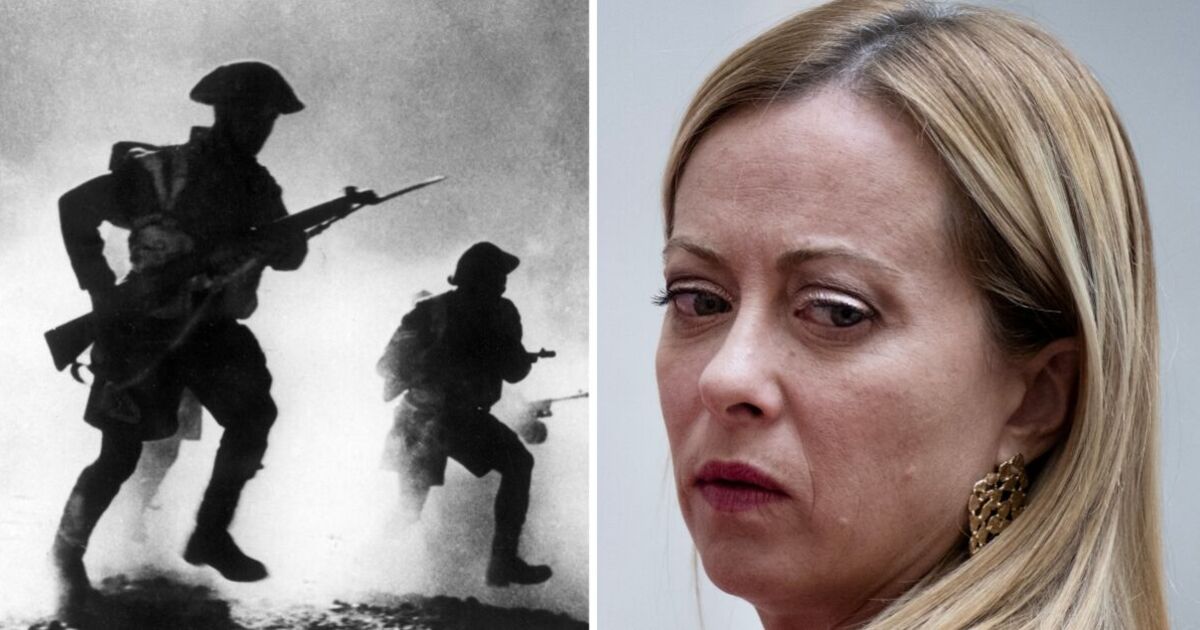Italy has praised fascist soldiers defeated at the battle of El Alamein during World War 2, sparking widespread criticism.
The country’s defence ministry paid tribute to the Italian military personnel who “sacrificed their lives” for Italy’s “freedom” as it marked the 82nd anniversary of the battle against Britain and its wartime allies.
The second El Alamein battle took place in Egypt in 1942. The Allies won it thanks to a huge effort involving some 190,000 men.
It marked a defeat for the German-led Axis and was a major blow to the ambitions in North Africa of Nazi dictator Adolf Hitler.
Thousands of Italians were among those killed or captured in the battle as they fought for the fascist regime of dictator Benito Mussolini.
Paola Chiesa of Prime Minister Giorgia Meloni’s Brothers of Italy party also wrote on Facebook that “the Heart of our Nation is today at El Alamein”.
Italy’s right-wing government sparked widespread criticism after celebrating the battle, with the opposition party, the Five Star Movement, stressing it was “inopportune” to say Italian troops had fought for freedom.
In a statement, the Five Star Movement said while Italy’s soldiers fought bravely, they were “victims of [Italy’s] colonial and fascist regime”.
Gianfranco Pagliarulo, president of the National Partisans’ Association, ANPI, said: “Italian boys in El Alamein did not fall for our freedom, as ambiguously claimed by the Ministry of Defence, but were sent to die by the fascist government.”
Mattia Guidi, a professor of politics at Siena University, quoted by the Reuters news agency, said: “How you can associate El Alamein with having ‘fought for our freedom’ is beyond my comprehension.”
Mario Macis, a professor of economics at Johns Hopkins University, said the Italians fought the battle to suppress the freedom of others, adding: “There is nothing to be proud of, only cause for shame and the need to apologise.”
Ms Meloni leads the far-right Brothers of Italy party, which traces its roots to the neo-fascist Italian Social Movement (MSI) that emerged after Mussolini’s fall.
She has tried to distance her party from its neo-fascist past and has openly condemned all totalitarian regimes, including fascism.
But opposition parties have repeatedly accused Ms Meloni and some of her closest allies of refusing to declare themselves “anti-fascist firmly”.
In January, the Italian defence ministry sparked criticism amid claims it was trying to rehabilitate fascism after it published a calendar honouring Mussolini’s soldiers.
The ministry denied trying to stoke division, insisting the calendar aimed to show the “commitment and bravery” of the Italians in the country’s “War of Liberation”.
